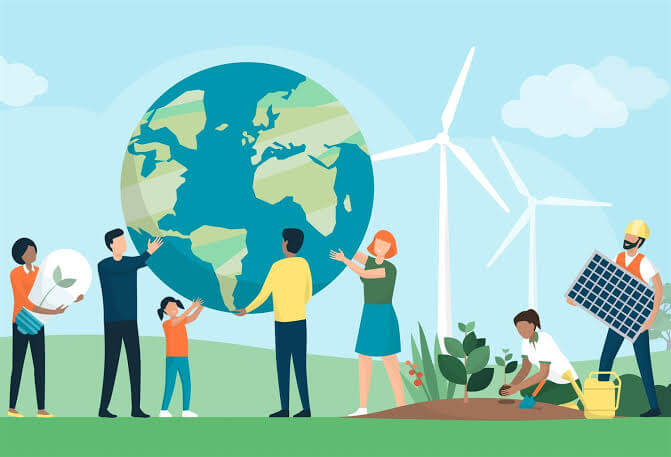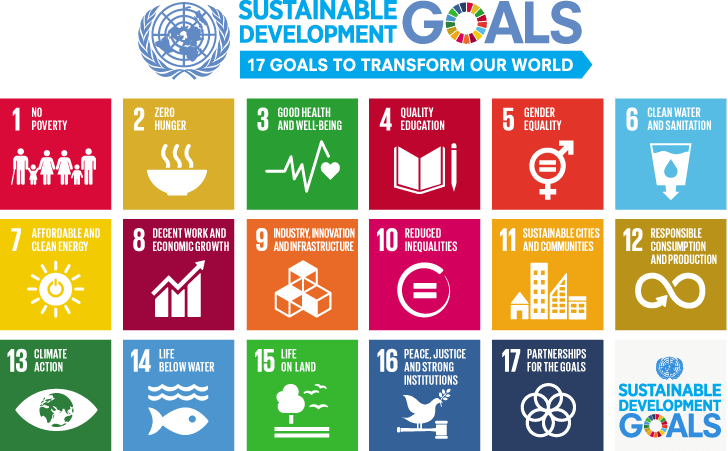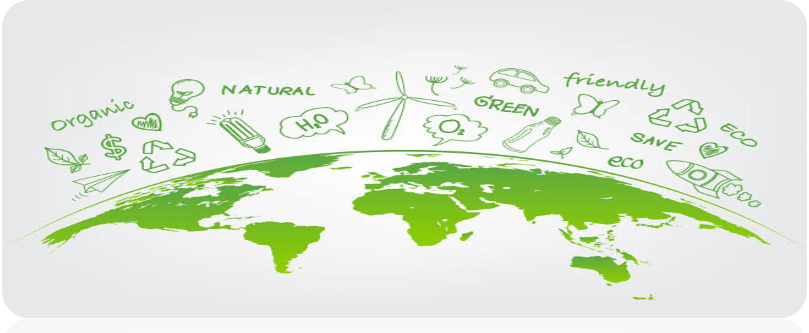Advantages and Disadvantages of Sustainable Development"Sustainable development is a development that meets the needs of the present, without compromising the ability of future generations to meet their own needs." The concept of sustainable development can be interpreted in many different ways, but at its core is an approach to development that looks to balance different, and often competing, needs against an awareness of the environmental, social, and economic limitations we face as a society. 
All too often, development is driven by one particular need, without fully considering the wider or future impacts. We are already seeing the damage this kind of approach can cause, from large-scale financial crises caused by irresponsible banking to changes in the global climate resulting from our dependence on fossil fuel-based energy sources. The longer we pursue unsustainable development, the more frequent and severe its consequences are likely to become, which is why we need to take action now. Living within our environmental limits is one of the central principles of sustainable development. One implication of not doing so is climate change. Sustainable development is about finding better ways of doing things, both for the future and the present. We might need to change the way we work and live now, but this doesn't mean our quality of life will be reduced. A sustainable development approach can bring many benefits in the short to medium term, for example: Savings - As a result of SDC scrutiny, the government has saved over £60m by improving efficiency across its estate. Health & Transport - Instead of driving, switching to walking or cycling for short journeys will save you money, improve your health, and is often just as quick and convenient. In September 2015, the General Assembly adopted the 2030 Agenda for Sustainable Development which includes 17 Sustainable Development Goals (SDGs). Building on the principle of "leaving no one behind", the new Agenda emphasizes a holistic approach to achieving sustainable development for all. The year 2016 marks the first year of the implementation of the SDGs. At this critical point, #Envision2030 will work to promote the mainstreaming of disability and the implementation of the SDGs throughout its 15-year lifespan with objectives to:
The 17 sustainable development goals (SDGs) to transform our world:GOAL 1: No Poverty GOAL 2: Zero Hunger GOAL 3: Good Health and Well-being GOAL 4: Quality Education GOAL 5: Gender Equality GOAL 6: Clean Water and Sanitation GOAL 7: Affordable and Clean Energy GOAL 8: Decent Work and Economic Growth GOAL 9: Industry, Innovation and Infrastructure GOAL 10: Reduced Inequality GOAL 11: Sustainable Cities and Communities GOAL 12: Responsible Consumption and Production GOAL 13: Climate Action GOAL 14: Life Below Water GOAL 15: Life on Land GOAL 16: Peace and Justice Strong Institutions GOAL 17: Partnerships to achieve the Goal 
Advantages of Sustainable DevelopmentA review of the advantages and disadvantages of sustainable development allows us to better answer this question, while helping us to understand the different dimensions of the concept, beyond its simple and idyllic definition, incomplete in reality. Among the pros of sustainable development, obviously its objective, perhaps utopian, but at the same time necessary to save the planet from a major crisis, must be cited. To do this, it proposes a feasible solution by harmonizing the economic, social, and environmental aspects. 
Considering any of these issues separately will lead us to a dead end sooner or later. On the other hand, taking care of the environment, and its resources, without renouncing social and economic progress is synonymous with sustainability and avoids a disastrous outcome. The proliferation of sustainable products and services has the advantage of creating a better world for all, not only more sustainable but more ethically. In an environment that tends to sustainability, governments must be responsible, and citizens are more aware and ask important questions in their role as consumers.
The main pillar on which all this is sustained and where ideas take shape to develop the economy without compromising nature. As it involves reducing the emissions of gases that create phenomena such as acid rain or global warming, it directly causes the search for alternative, clean, and equally effective forms of energy. Adopting this ideology necessitates taking action to reduce pollution because a large portion of human activity is to blame for the environment's decline. Doing so can have positive effects such as improved air quality, an increase in green space, the preservation of the planet's biodiversity, the survival of more species, etc.
Given the current state of the environment, the fact that steps are being taken to lessen the impact of land warming or other occurrences like the melting of the poles or changes in such an abnormal climate guarantees that future generations will be able to live comfortably. This also entails making sure that the natural resources of the planet are not depleted and that there is sufficient supply for renewal or, if not, that they last for a significant amount of time, as in the case of oil and natural gas.
It can be as simple as implementing waste reduction practices or using contemporary technology that is powered by clean energy and building materials that leave fewer carbon footprints. Perhaps most obviously, it is beneficial for the environment and business practices to go against the grain of conventional development and choose to develop in a more thoughtful manner.
Living in a sustainable development boosts our performance, particularly in this day and age when we spend most of our time at home or in one location. We can concentrate better and complete tasks more quickly when we are in a better environment, whether that is working from home or staying active. As a result, we become more focused on our achievements and worry less about harming the environment, which eventually improves our general health and relationships with others in the community. Disadvantages of Sustainable DevelopmentThe conflict between the need for cross-border cooperation and the need for solutions is one of the main challenges facing the implementation of sustainable policies because neither is currently being produced, let alone do they have any real future visions. Unfortunately, current global patterns of production and consumption are going in the opposite direction of what a sustainability policy would have us do. But not everything that glitters is gold, and sustainable policies also have a lot of drawbacks. Because so many factors must be combined to produce the desired sustainability, governance itself must constantly deal with uncertainty. Similarly, even tools that are thought to be more sustainable, such as organic farming or renewable energy sources, have a number of drawbacks that must be addressed intelligently in order to truly aid in sustainability. As a result, while sustainable development can help to end global poverty and adjust social inequalities by addressing human needs more equitably and reorienting technology to respect the planet and ensure its long-term viability, it also has negative consequences. Among other things, the required mental shift would harm major capitals, implying that a radical transformation of society would be required, which is difficult to believe will occur. The goal of sustainable theory, a paradigm that today invites you to dream and, of course, fight to make that reality, is to not abuse nature, or human beings, or turn the economy into an instrument that enriches only a few. It is possible to create a better world.
Although the intentions are good, implementing them will be costly because it will require replacing or drastically reducing the energy that currently serves a portion of the population, altering infrastructure, changing consumption patterns, and other costs associated with this transition. In this regard, the perspective also has an impact because, while developing countries would find it difficult to bear these costs, first-world countries would not have as much trouble implementing new energy sources.
Numerous industries may scale back their operations or, in the worst-case scenario, cease them all together in response to changes to protect and care for ecosystems and biodiversity. Many people who have dedicated their entire lives to working in a single industry, like the coal industry, may become unemployed due to this. Although sustainability considers a better quality of life in the future, it neglects to consider the side effects on the population now.
There is a chance that the commitment made to society will not be taken seriously because the transition to a more environmentally friendly industry will be more expensive and challenging to meet due to the factors mentioned above. Because the results are usually long-term, this inconvenience would arise, but in developing countries, it might not be possible to wait for so long.
The operations of businesses, factories, plants, and other entities that have an impact on the environment would be subject to additional regulations, such as those requiring them to reduce carbon dioxide emissions or properly dispose of waste. Despite the apparent necessity and common sense of these regulations, not everyone could adhere to them without sacrificing their productivity and quality of work, and small businesses would also face very onerous entry standards.
Next TopicAdvantages and Disadvantages of Trees
|
 For Videos Join Our Youtube Channel: Join Now
For Videos Join Our Youtube Channel: Join Now
Feedback
- Send your Feedback to [email protected]
Help Others, Please Share










